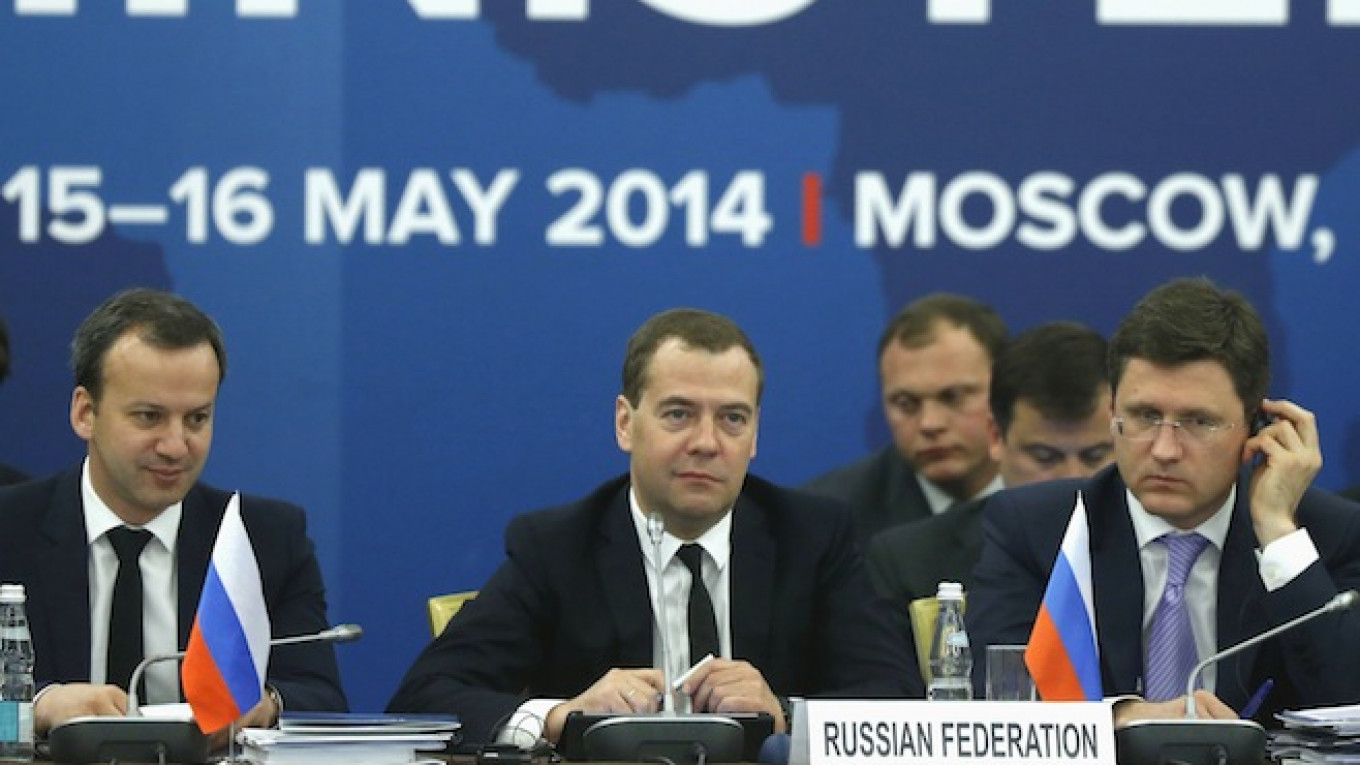Middle East crude producers have played down the threat of a competitive battle with Russia over Asian markets, despite Russian Prime Minister Dmitry Medvedev emphasizing his country's push to the east.
Speaking Thursday at the 14th International Energy Forum in Moscow, Medvedev told ministers from OPEC countries including Saudi Arabia, Algeria, Iran and Kuwait and some former Soviet states that Russia would play an active role in Asian markets.
"Energy producers will target these countries," Medvedev said. "Cooperation with the Asia Pacific [region] is important to us not only from the prospect of the future and existing market but also from the point of speeding up development of our country."
Russia for years has been negotiating to sell more oil and gas to Asia and planning new pipelines. The Kremlin has recently stepped up its efforts to shift eastwards as Russia has been hit by trade sanctions in the worst stand-off with the West since the Cold War over the Ukraine crisis.
OPEC countries, meanwhile, have also been looking more to Asian markets as demand has fall from the U.S. due to its boom in shale oil and gas output.
Saudi Arabia, which said this week it would step in to cover any potential shortage arising from the Ukraine crisis, played down suggestions that Russia could hurt its competitive position.
"Every one knows that [growth is in Asia], that's true, but that doesn't mean that there is no demand in the rest of the world," Saudi Oil Minister Ali al-Naimi told reporters in Moscow.
"Russia has its customers, we have our customers. There is no threat [to our supplies]."
The main focus is on China, where demand for liquids is forecast to grow by 8 million barrels per day, or bpd, to reach 18 million bpd in 2035, surpassing the U.S. in 2029, according to BP.
Russian President Vladimir Putin plans to visit China next week and hopes to sign a gas deal.
Fair Price
Russia and the Organization of the Petroleum Exporting Countries, or OPEC, together account for about half of the world's total oil output.
Relations between Russia and OPEC came unstuck in 2008, when the cartel urged Moscow to support its decision to limit oil exports to push up global prices from around $40 per barrel. Moscow did not support the move.
Earlier this week, al-Naimi said OPEC should maintain its current output cap of 30 million bpd when it comes up for review at the group's meeting on June 11 in Vienna.
On Thursday, al-Naimi described current oil prices as "fair, excellent for everybody."
A Message from The Moscow Times:
Dear readers,
We are facing unprecedented challenges. Russia's Prosecutor General's Office has designated The Moscow Times as an "undesirable" organization, criminalizing our work and putting our staff at risk of prosecution. This follows our earlier unjust labeling as a "foreign agent."
These actions are direct attempts to silence independent journalism in Russia. The authorities claim our work "discredits the decisions of the Russian leadership." We see things differently: we strive to provide accurate, unbiased reporting on Russia.
We, the journalists of The Moscow Times, refuse to be silenced. But to continue our work, we need your help.
Your support, no matter how small, makes a world of difference. If you can, please support us monthly starting from just $2. It's quick to set up, and every contribution makes a significant impact.
By supporting The Moscow Times, you're defending open, independent journalism in the face of repression. Thank you for standing with us.
Remind me later.






